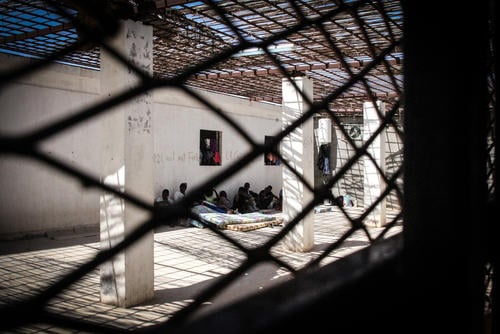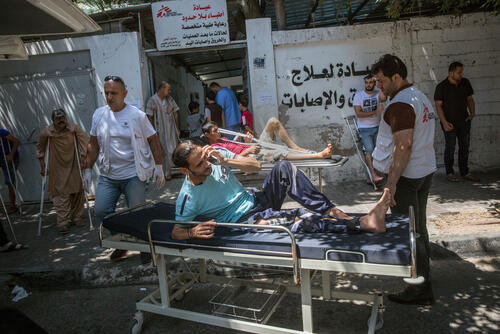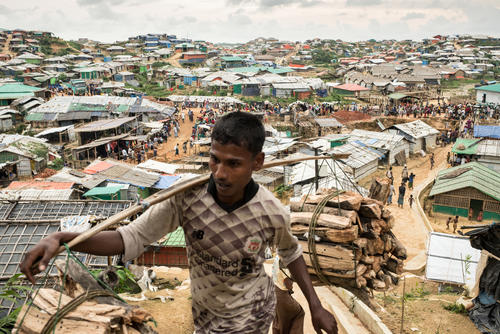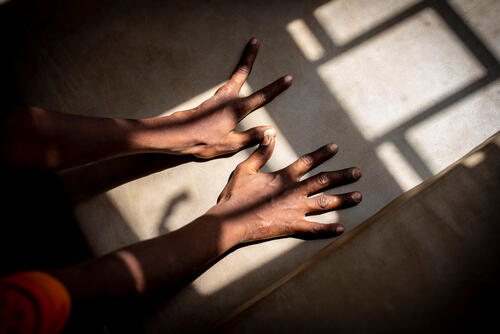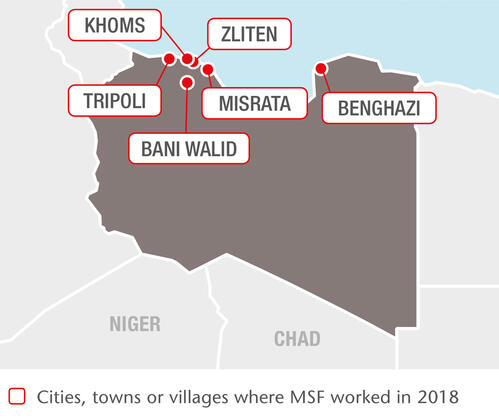
46,900
46,9
1,160
1,16
180
18
In 2018, Médecins Sans Frontières (MSF) provided medical assistance to migrants and refugees arbitrarily held in detention centres in Libya nominally under the control of the Ministry of the Interior.
Many of our patients in the centres were extremely vulnerable people, for example unaccompanied children, lactating mothers and their newborns, and survivors of human trafficking who had been held captive for prolonged periods, deprived of food, tortured and exposed to extreme violence, including the killing of family members.
Most of the medical issues we treated were related to or aggravated by the dire conditions inside the centres, with overcrowding, inadequate food and drinking water, and insufficient latrines facilitating the spread of acute respiratory tract infections, tuberculosis, diarrhoeal diseases and skin diseases such as scabies. Mental health disorders and trauma were frequently exacerbated by the ordeal of indefinite detention.
MSF repeatedly denounced this unacceptable situation deliberately reinforced by European policy makers, but we saw little positive progress.
On the contrary, the campaign to effectively criminalise search and rescue vessels on the Mediterranean and the EU’s handover of responsibility to the Libyan coastguard for these operations, further sealed off the Libyan coast, trapping vulnerable people in a country where their lives are endangered and where serious human rights violations occur, as documented by the United Nations and other organisations.
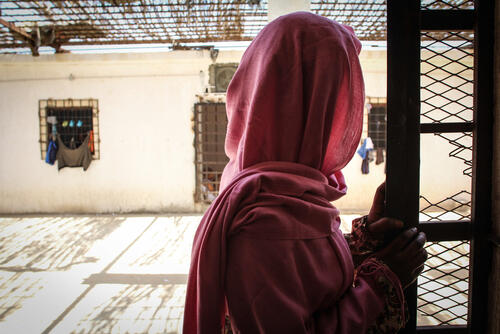
In 2018, our teams conducted over 31,500 medical consultations in detention centres in Tripoli, Misrata, Khoms and Zliten and referred over 1,000 patients to secondary healthcare facilities.
On dozens of occasions in Misrata and Khoms, we gained access to people who had been brought back from the sea by the Libyan coastguard or commercial ships in violation of international refugee law and maritime conventions. We carried out about 140 first aid consultations at disembarkation points in 2018.
We continued to work in Bani Walid, reportedly a major hub for smugglers and traffickers, in order to assist people who had been held captive by criminal networks in the area but had managed to escape or been released. We conducted 810 medical consultations with survivors and referred a dozen people for secondary healthcare in Misrata or Tripoli.
The majority of migrants and refugees live outside detention centres or are held in clandestine places of captivity, and like the local communities in Libya they are affected by the deterioration in public health facilities, which face severe shortages of medicines and staff.
In 2018, our teams provided 2,500 outpatient consultations in Tawergha and Misrata to both local people and migrants. We also started offering antenatal and postnatal care to women living in Bani Walid. Conversely, we closed our project in Benghazi, in the east of the country, where our presence had become less relevant.



